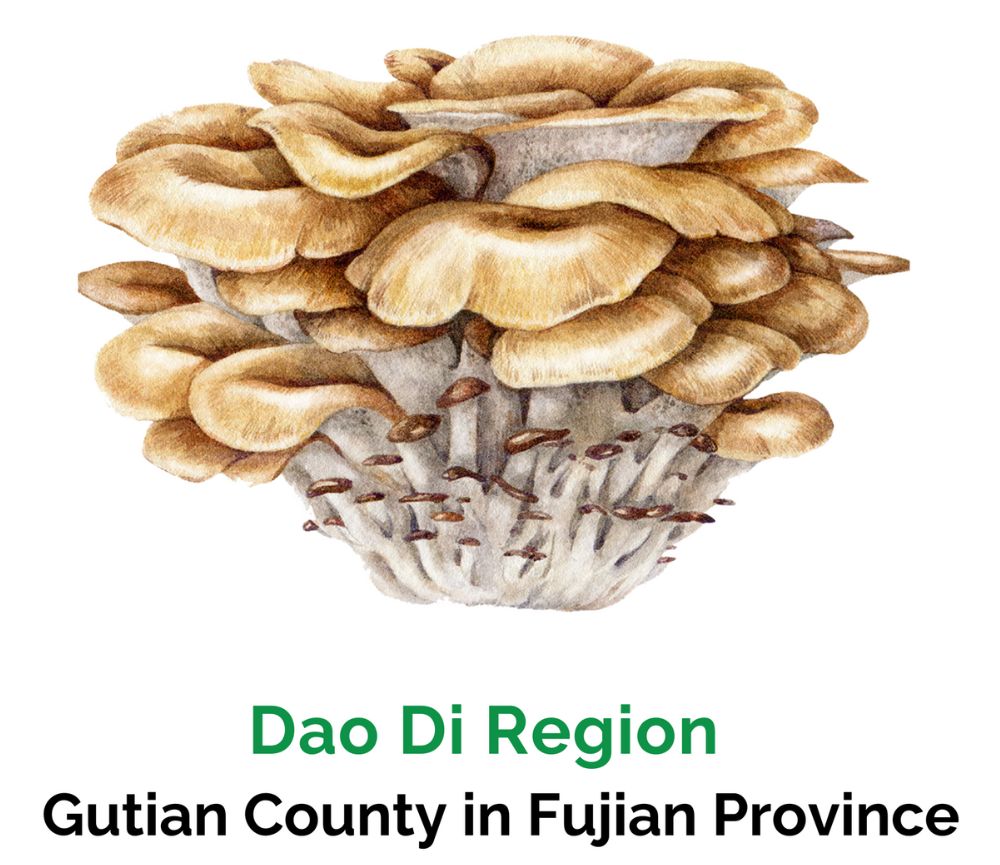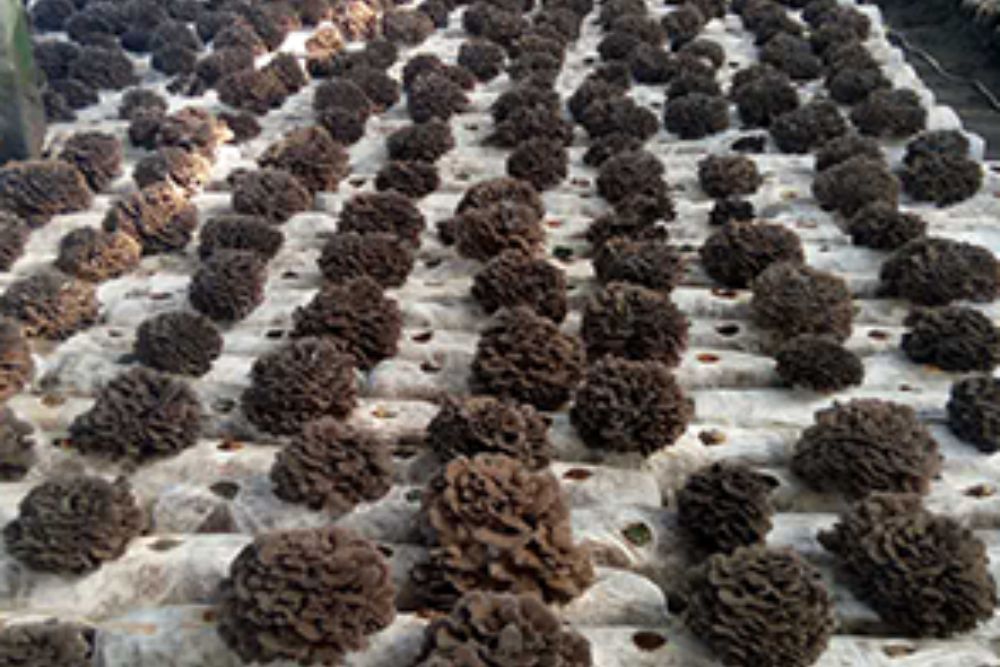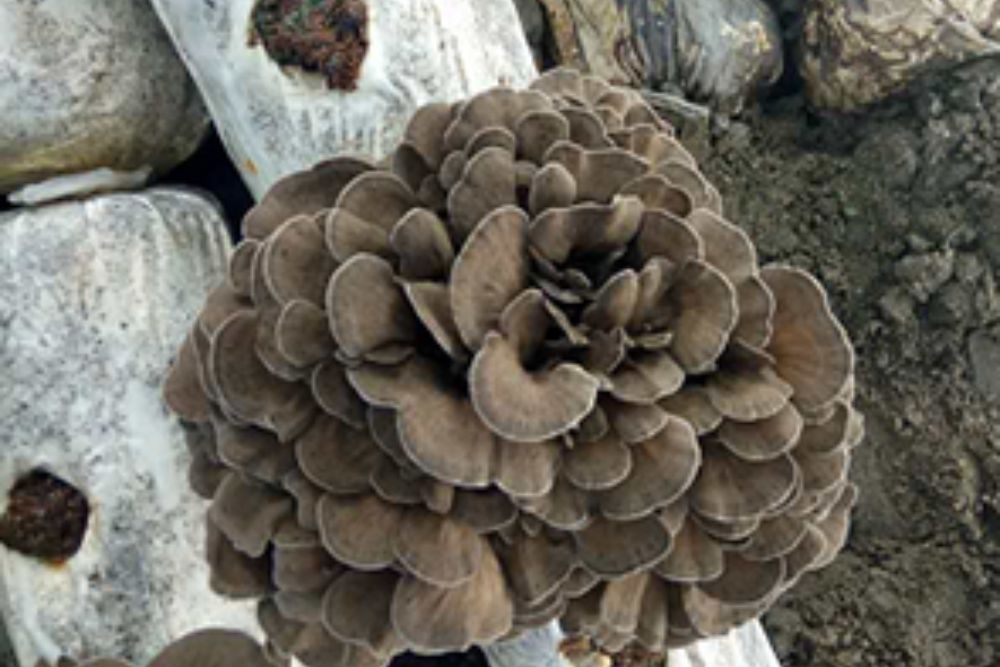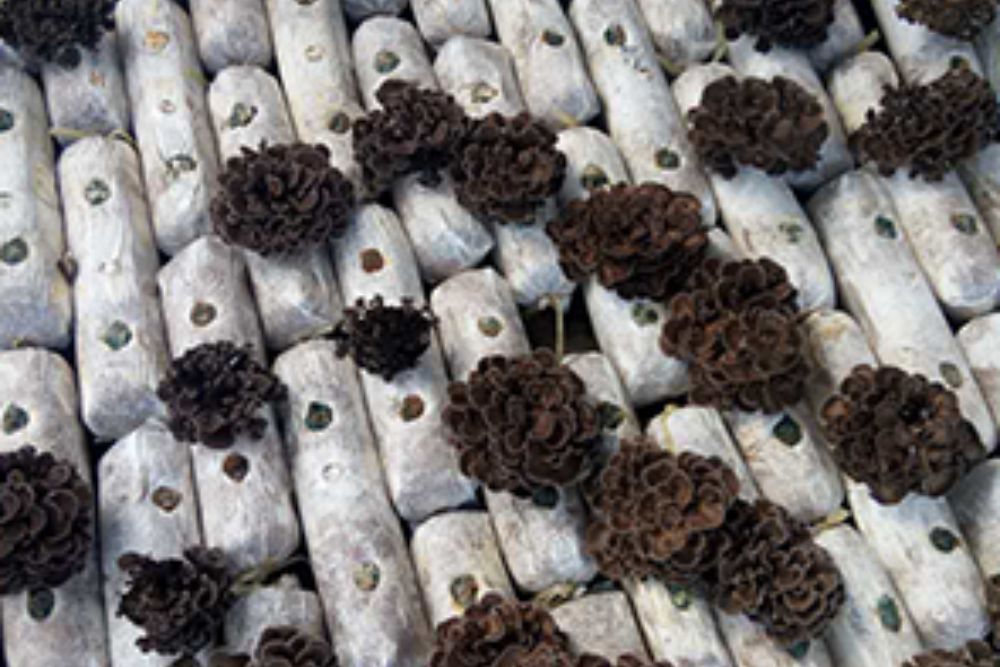Maitake


Maitake, scientifically identified as Grifola frondosa, is not only celebrated as a gourmet culinary mushroom worldwide but also holds a fascinating cultural significance in Chinese medicine and ancient Japanese traditions. Legend has it in Japan that finding Maitake mushrooms would elicit such joy that people would break into spontaneous dance, earning it the name dancing mushroom – “mai” signifying dance, and “take” meaning mushroom. Furthermore, in the 12th & 13th centuries, Maitake’s value was so esteemed that it served as a form of currency, with its worth equivalent to that of silver (1).
In addition to its cultural and historical significance, Maitake stands out as one of the most nutrient-dense mushrooms. Boasting a high fiber content, a significant level of ergothioneine (a unique antioxidant), 108% of the daily value per serving of Vitamin D, Biotin (B7), Niacin (B3), and Copper, Maitake emerges as a powerhouse of nutritional benefits (2). Extensive research over the last 3 decades has uncovered a wide range of peptides, sterols, fatty acids, proteins, alkaloids, flavonoids, vitamin E, vitamin C, and more than 47 bioactive polysaccharides including the immune system regulators beta-glucan D-fraction and MD-fraction (4, 5).
As our understanding of its medicinal properties deepens, Maitake continues to captivate attention for its diverse range of applications in the realms of both traditional and modern medicine. In China and Japan, Maitake has a thousand-plus year long history for boosting and regulating the immune system and in recent times is highly regarded clinically in cancer therapy (6). Today, it has been studied for its ability to regulate blood sugar and lower cholesterol (6), and currently, there are over 20,000 studies on beta-glucans in scientific databases, solidifying its immune-boosting properties as a cornerstone in traditional Chinese and Japanese medicine.
Optimized Immune Function
Cardiovascular Health: Cholesterol & Hypertension
Balanced Blood Sugar Regulation
Powerful Antioxidant | Reduced Inflammation
Along with high blood sugar, inflammation is a primary underlying cause of why healthy cells lose function, a.k.a metabolic health. Graciously, Maitake contains prized molecules like peptides, sterols, fatty acids, alkaloids, flavonoids, vitamin E, and vitamin C that synergistically provide robust antioxidant activity (16). According to the documented effects of these properties in the paper “Bioacitve Ingredients and Medicinal Values of Maitake”, pro-inflammatory compounds like superoxide, DPPH2 radicals, hydrogen peroxide, and hydroxyl radical were neutralized (4).
Interestingly, the presence of zinc has the potential to amplify these antioxidant activities. Researchers who employed zinc-infused polysaccharides demonstrated advanced antioxidant and anti-aging capabilities inside the cell compared to the control that didn’t include zinc (17).





